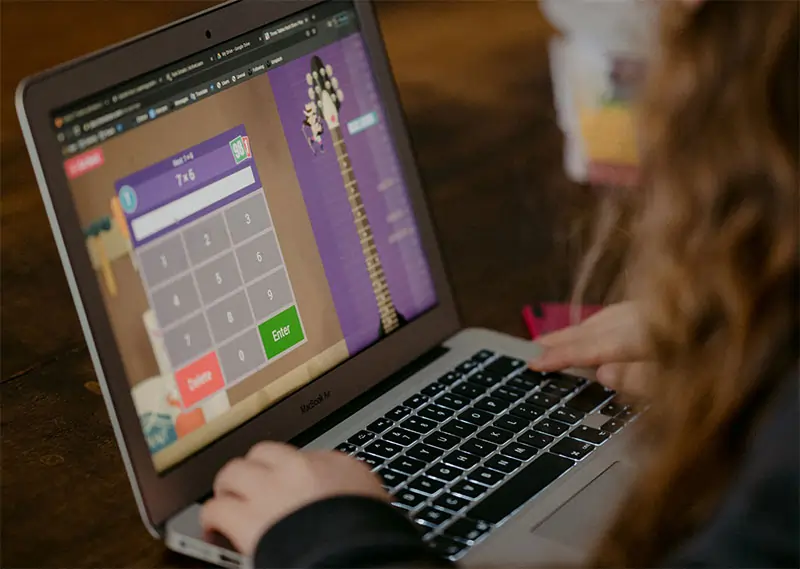Education Technology: A Guide To Game-Based Learning
Technology has revolutionized many industries in the last decade, including education.
Education technology, also known as edtech, is when technology is integrated into learning plans to provide engaging and interactive experiences for students, both in the classroom and online. Here are some ways edtech is transforming learning:
- Edtech builds better collaboration between students. Interactive and collaborative learning games empower students to work together, whilst online education platforms allow students to share homework and seek peer assistance.
- Edtech makes resources and assignments always accessible. Online education platforms allow students to complete homework and access resources anytime and anywhere with an internet connection.
- Edtech aids a flipped classroom approach. A flipped classroom is when students complete readings and watch video lectures at home so they can work on live problem-solving during class time. This approach promotes self-learning, creativity, and collaboration.
- Edtech gives students a personalized education. Edtech data enables teachers to create personalized learning plans tailored to an individual student’s strengths, weaknesses, skills, and interests.
- Edtech offers engaging lessons. Edtech offers captivating, interactive and stimulating lesson options. Students can interact with classrooms worldwide through video, submit assignments in video or podcast formats, and engage in game-based problem-solving activities.
Edtech usage among K-12 schools has increased by 99% since the year 2020, and one of the most exciting concepts for students and teachers alike is game-based learning.
What Is Game-Based Learning?
Game-based learning is a method that uses the power of both digital and non-digital games to teach students certain areas of a curriculum. Components of game-based learning include badges, leaderboards, discussion boards, point systems, and quizzes.
Game-based learning is a great way to improve a student’s creativity, critical thinking, and problem-solving skills through motivation and engaging lesson plans. Game-based learning is also often based on imagination, allowing students to develop solutions and ideas.

Does Game-Based Learning Work?
Yes. Decades of research in development and educational psychology suggests that engagement is a key contributor to success and achievement.
Vanderbilt University in Nashville conducted a study which focused on curriculum-based games for education, and involved over 1000 students in seven states. The research showed that students who played games to learn were able to retain more information in comparison to their peers who didn’t.
Additionally, teachers saw dramatic increases in engagement and performance, and 54% strongly agreed that game-based training is a must-have in modern learning.
In addition to the study results, it is known that the consequences of getting something wrong in a game are minimal so games can continually enforce a student’s belief that they can do better. This means games allow students to embrace wrong attempts and try again until they get it right, flipping their failure into their motivation.
What Games Are Being Used For Learning?
Textbooks have been used for a long time as a universal way of learning. However, creating and marking textbooks takes time, whilst game-based learning is flexible, adaptable, and can be updated quickly, making it a practical learning tool.
Edtech games use technology to teach students, whilst other non-digital games just require some imagination and perhaps a pack of cards or some props. Here are some examples of games that are being used for learning:
- Real-life games. Real-life games require students to make body movements and use their brains to learn. In Science, students can learn about physics, specifically friction, by playing tug of war with their peers.
- Card games. Students can play 21 (also known as Blackjack) to improve their math and critical thinking skills. Students want to get their hands as close to 21 as possible but must be careful not to go over or they are busted. There are also card games to help enhance a student’s memory, such as Solitaire and Memory.
- Board games. Monopoly can be considered an educational game as it includes all the necessary elements: a story, characters, points, and competition. The board game and its rules can also be modified for various subjects, such as History or Maths.
- Video games. In English, video games teach students about characters and plot when they inhabit a character and learn about their strengths and weaknesses. In History, a game such as Civilization VI allows students to study the growth of empires and historical periods more engagingly than reading a textbook.
- Mobile phone and tablet games. 95% of teenagers (aged 13 to 17) in the US have a smartphone. So, it’s only right that thousands of apps have been created to help children learn all subjects, including math, art, and languages, and develop all skills, including problem-solving and creativity.
- VR- or AR-powered games. In Science, students can use VR apps and simulators to dissect an animal or explore the human body, learning about anatomy. In Geography, students can use VR headsets to place themselves anywhere, including the Great Wall of China, the Louvre Museum, and the Taj Mahal.
Related: Recent Trends in the Indian Education Industry
The Future of Edtech and Game-Based Learning
Less than three decades ago, edtech in schools was limited to students occasionally being able to watch documentaries on a television screen. Now, the value of the global edtech market is expected to be worth up to $404 billion in 2025.
Although games have always been played in the classroom and the playground, technological improvements have launched game-based learning into the curriculum. Now, ed-tech giants are working to offer new game-based education experiences, including multiple-choice quizzes, gamified flashcards, virtual labs, and immersive science lessons.
37% of the game-based learning market growth will originate from North America, and as the market continues to grow, we expect the research to become clearer on the impacts and importance of games in learning.
Dan Curcio, a science teacher at The Community School in New Jersey, said: “Game-based learning is [an] innovation that I have seen benefit my students. The need for the research to expand these strategies worldwide has become a priority.”

